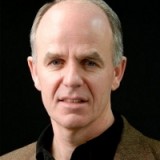The recent federal election has once again reignited debate about the need to reform our voting system and a “National Day of Action for Electoral Reform” has been called for May 14.
The current first part the post (FPTP) system creates majority governments despite the fact the majority of voters do not vote for the winning party, and it denies seats to political parties that gain significant popular support at the ballot box.
In this past federal election, the Conservatives won 54% of the seats in Parliament with the support of less than 40% of voters (only 26% of the registered voters). The 60% majority of Canadians who did not want a Conservative government are left with only the hope that Prime Minister Harper will honour their vote by incorporating some of the Opposition’s ideas into his agenda.
In the 1996 BC election, the NDP won government despite the fact the BC Liberals got the majority of votes, causing the BC Liberals to become advocates for electoral reform.
In 2001, the NDP were reduced to 2 seats in the Legislature, despite still obtaining 22% of the vote. With a proportional voting system, the 2001 election would have resulted in the NDP winning 17 seats and the Green Party 9 seats.
Enter the Citizens’ Assembly on Electoral Reform – a result, really, of both parties having experienced the distorted outcomes of the FPTP system in back-to-back elections. The Assembly recommended that BC adopt a Single Transferable Vote (STV) system which would allow voters to rank multiple candidates on election day (a preferential ballot), require successful candidates to get over 50% to win a seat, and ensure everyone’s vote counted.
The 2005 and 2009 BC Referendums on STV were unsuccessful – however, in 2005 British Columbians clearly signalled they wanted a change in their voting system.
Recently, both the BC NDP and the BC Liberals used a preferential ballot during their leadership contests. The Liberals even used a weighting system to balance the rural/urban vote and required their members to select a minimum of two candidates in order for their ballot to be accepted.
If you believe all British Columbians should be allowed to mark preferential ballots, that we need to finish the conversation the Citizens’ Assembly started, please get engaged in this week’s day of action for electoral reform.
Bob Simpson is the Independent MLA for Cariboo-North – http://www.bobsimpsonmla.ca/


The problem with assigning seats based on percentages is we don’t vote for mathematical formulas. We don’t vote for parties, we shouldn’t be voting for seals to do what ever their leader says. We Vote for People and we need to give the people we entrust with our vote a little more responsibility.
COUNT EVERY VOTE. Once we know how many votes ever candidate running in every riding garnered, we need to put them all in one room and starting with the candidate with the lowest total, have them transfer their votes to someone above them on the list. Candidates can transfer their votes to someone else in their riding or to another riding in the Province. An MLA is selected when they are the last person from that riding. 100% of valid votes cast will end up being represented by one of the 85 elected MLA’s.